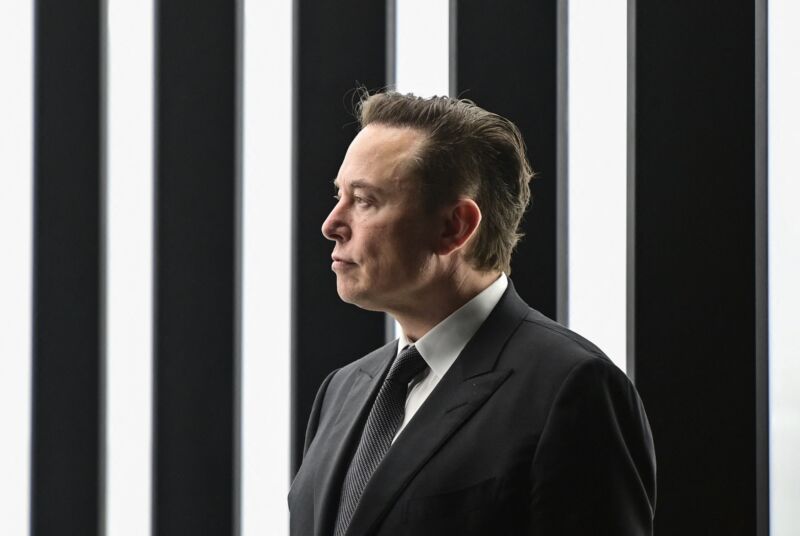Musk loses in court, has to delete tweet threatening Tesla workers who join union

Tesla CEO Elon Musk violated US labor law by threatening to take stock options away from employees who join a union, a federal appeals court ruled Friday. The appeals court said the US National Labor Relations Board can enforce its order that requires Musk to delete the tweet.
Musk’s tweet in May 2018 is still online and said in part, “Nothing stopping Tesla team at our car plant from voting union. Could do so tmrw if they wanted. But why pay union dues & give up stock options for nothing?” Musk issued the tweet amid a union campaign at a Tesla vehicle manufacturing plant in Fremont, California. Tesla factories are still not unionized.
A federal administrative law judge ruled against Tesla and Musk in 2019, finding among other things that Musk violated labor law with the tweet. The NLRB affirmed that and most other portions of the judge’s ruling in 2021. Tesla challenged in the US Court of Appeals for the 5th Circuit, which sided with the NLRB in its ruling on Friday:
Tesla first argues that Musk’s May 20, 2018, tweet “was not threatening on its face” because the tweet started out by saying that there was “[n]othing stopping” employees from unionizing and it is a strain to characterize “give up stock options for nothing” as a threat, because, unlike the threat of plant closure, compensation is not within the employer’s unilateral control once employees unionize and the parties engage in collective bargaining.
However, because stock options are part of Tesla’s employees’ compensation, and nothing in the tweet suggested that Tesla would be forced to end stock options or that the UAW would be the cause of giving up stock options, substantial evidence supports the NLRB’s conclusion that the tweet is as [sic] an implied threat to end stock options as retaliation for unionization. Moreover, the statement in the tweet is materially similar to other statements that the NLRB and our court have found to be threats.
The 5th Circuit appeals court ruling was made unanimously by a three-judge panel and dismissed appeals submitted by both Tesla and the United Auto Workers (UAW) union. Tesla or the union could still ask for an en banc review with all the court’s judges, though the unanimous ruling suggests that would be an uphill battle.
Ruling: Tesla illegally fired pro-union worker
As the ruling notes, Tesla challenged “the NLRB’s finding that Tesla CEO Elon Musk posted an unlawful threat on Twitter” and “the NLRB’s conclusion that employee Richard Ortiz was unlawfully terminated.” The appeals court rejected both of Tesla’s arguments and granted the NLRB’s cross-application for enforcement of its order, which told Musk to delete the tweet and told Tesla to reinstate Ortiz with back pay.
The court also said the NLRB can enforce other portions of the order that weren’t challenged in court. The NLRB found Tesla committed several other violations including interfering with employee leafleting, prohibiting employees from distributing union materials without approval and threatening them with discharge, prohibiting employees from communication with the media about their employment, interrogating certain employees about union activity, and disciplining employee Jose Moran for his union activity.
On the Ortiz firing, Tesla argued that it fired him for lying during an investigation into employee misconduct. Ortiz had posted two screenshots of Tesla employee profiles from the Workday application to a private “Tesla Employees for UAW Representation” Facebook page and criticized those employees for testifying in the California Legislature against legislation supported by the union. His post on the Facebook page also accused one of the employees of “kissing ass and ratting on people.”
Ortiz later admitted that he lied when he told a Tesla investigator he didn’t remember where he got the screenshots, which he had received from Moran. The appeals court found there is substantial evidence supporting the NLRB finding “that Ortiz was fired for lying about protected union activity and not related to his job performance or Tesla’s legitimate business interests or workplace rules, and that union animus motivated—at least in part—the complaint, investigation, and decision to terminate Ortiz.”
When the screenshots were taken by Moran and shared by Ortiz, “Tesla had no policy prohibiting such use of Workday or otherwise restricting access to the program,” the court ruling noted. In one of the uncontested portions of the NLRB order, the labor agency found that Tesla violated the law by “promulgating a rule restricting Workday use in response to Ortiz and Moran’s union activity.” Tesla was ordered to rescind the rule.
https://arstechnica.com/?p=1928673